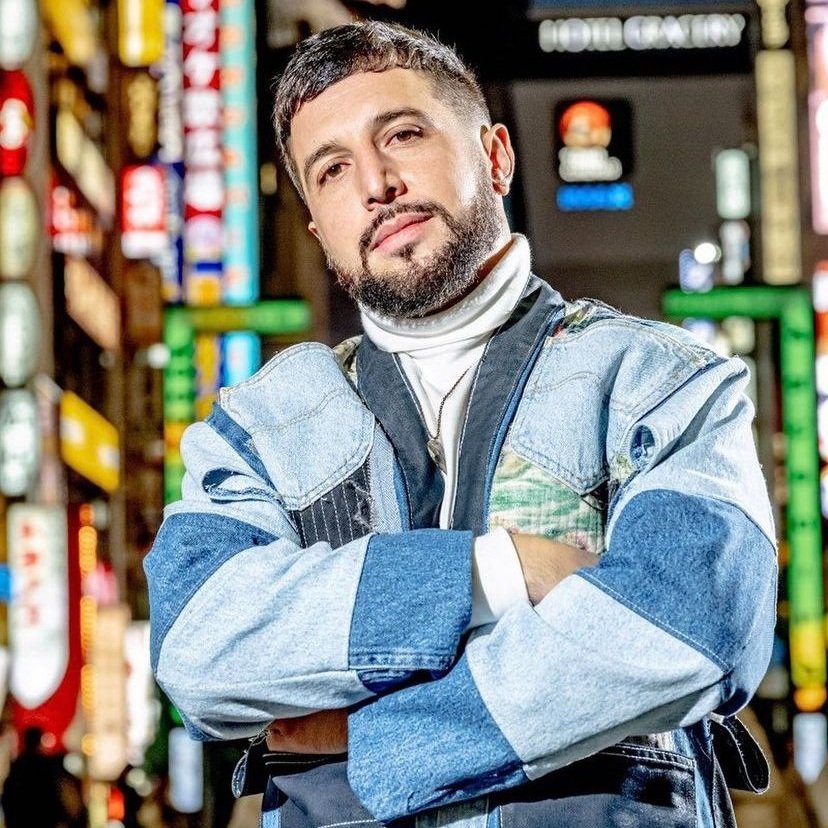Are we artists or are we creators?
A new debate arises about the titles of those who create for the market and those who simply create.
A few months back, I witnessed a discussion online that sparked a lively debate around the idea of the creative. The gist of the discussion was making a distinction between being an artist and being a creative. Were they the same or were they different? What are the roles of the creative and the artist, are those the same? Are their motivations, ends and philosophy the same? Within some people's minds, indeed, it's almost semantics to differentiate between the two. What do artists do but create? Isn't creative just a twenty-first century way of identifying an artist? It's clear for others, however, that there is a difference and that distinction between the two is critical for the longevity of the artist.
In the current climate of technology, cyberspace, and social media the popularizing of the title creative being interchangeable with artist likely can be traced to urban theorist, Richard Florida who as far back as the early 2000's looked to conflate various professions that sat outside the traditional arts as being related. The reasoning for this was a cynical one, as Florida predicted that the evolution of society and economic growth would stem from people whom he believed centered ideas and problem solving in their practice, regardless of the vocation or profession. The creative class effectively could be scientists, engineers, even lawyers and financiers who looked to think in inventive and innovative ways to advance their fields. Florida even went as far as to see the idea of creative as a personality type, and individuals of this new socioeconomic class would be a catalyst for changes in lifestyle, culture and commerce. As a theory, and in practice, it is an idea that corporate culture and popular culture embrace as a viable identity. Over the past two decades, the lines for many have blurred the idea of a professional class and those whom historically were seen as artists.
The ambiguity of the term art also has some responsibility for this blurring. The idea of what is art has been and still is a highly contentious debate, as some deem it to be the idea of classical art (visual, painting, theater, music, dance, poetry) while others especially in a post-modern sense, see it as any expression that evokes feeling regardless of medium, form or genre. If you make something that inspires or connects, then it's art. A more traditional view of art also includes or implies a practice, process and skill that is developed and honed to elevate said expression, while a softer view doesn't dismiss this. It also doesn't see it as a requirement to qualify as an art. This softer more malleable view is how the idea of a creative can come to live and absorb an artist within its definition. Florida wasn't looking to create a separate idea but in fact wanted to expand it, as from his point of view there are traits within other fields and individuals that are similar if not identical to what it means to be an artist.
In theory, it can be something that has positives and even on some level makes rational sense. However, in practice, this conflation has flattened and devalued the artist. Throughout history, artists have been seen as individuals who indeed inspire and create using the classical mediums and forms to do so. An artist's value wasn't seen by society as solely generating commerce, or necessarily having material value. Rather, they were the reflection of our consciousness and spirit, the mirror and the herald of our humanity. That role could and did over time indeed generate wealth or at least a living in the form of vocation — but again, that was not the goal or the aim of making art, far from it. This is why the idea of creatives and artists being the same is dangerous. In a world driven by material output and content, with the primary goal being profit, the responsibility of art as a genuine reflection of who and what we are, becomes in conflict. If your art doesn't create profit, is it of value? In the world of the creative this is absolutely the case, as the creative's role is to generate and produce primarily and ideally for profit. If the artist is simply just another creative, who is in the same space as the lawyer or the engineer, what then becomes their priority to be valuable or viable in society? The flattening and stretching of these ideas has led to a diminishing of art. When we think of the new world of the metaverse, social media and AI creating experiences for us, how do we qualify the traditional idea of the arts? If the tens of millions of people on the planet who fit the traditional idea of artist aren't generating similar experiences that result in profit, what is their value and role if they are to be considered or have to be lumped into the title of creative?
There is an intrinsic power in art, a value and a worth that is more than making content for consumption and ultimately profit. Art has the power to have us look deeper inside of ourselves to understand who we are, what we are and can help us make sense of this existence. It is the way that we has a species have countered inhumane ideas, and inspired and motivated others to react and respond. Art has the power to heal trauma, to help us understand and even is a tool to move through it. Art helps us learn, learn how to be human and whole. Most importantly, it has the power to do this without material cost or gain, and should be unburdened by that as a priority or responsibility. For the most part, that is still true, but the issue is we don't live in a non material world — so on some level in fact, being an artist for some, it is a means to sustain a person's livelihood. And that's the rub, in a world that revolves around commerce more than the spirit means, the lines between those two worlds will remain inextricably blurred.





